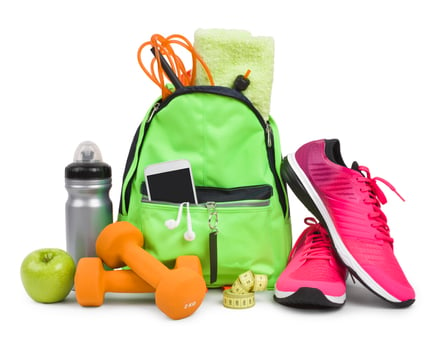 Thanksgiving is, in my opinion, the best holiday of the year. Theres no better way to express your love and care for someone than to make them a delicious meal and consume the delicious meal they made for you. Pair that with the added prospect of family members coming together from all over, and you’ve got great times waiting to happen. But sometimes love hurts, and on Thanksgiving that hurt takes the form of caloric surplus and post-meal shame. To prevent that, here are a few tips to help you enjoy the holiday to its fullest, free of any guilt:
Thanksgiving is, in my opinion, the best holiday of the year. Theres no better way to express your love and care for someone than to make them a delicious meal and consume the delicious meal they made for you. Pair that with the added prospect of family members coming together from all over, and you’ve got great times waiting to happen. But sometimes love hurts, and on Thanksgiving that hurt takes the form of caloric surplus and post-meal shame. To prevent that, here are a few tips to help you enjoy the holiday to its fullest, free of any guilt:
Tip 1: Save some for later!
If you’re anything like me, you get choice-paralysis as soon as you see the food table. Seeing it all spread out at once gets your mouth watering, and you can’t decide what you want to eat first. But then, your family members start getting their food, and you go from not knowing what you want to indiscriminately stacking food on your plate to avoid FOMO. Instead, return to the table after everyone has gotten their firsts, and get your seconds and thirds to take home! Not only will this prevent you from frantically gorging yourself the day of, but you’ll have secured meals for the following days as well. Why go through the trouble of meal prepping if you can just let your family do it for you? Work smarter, not harder!
Tip 2: Squeeze in a workout!
If you know without a doubt that you’re going to stuff yourself, a good way to stay in a healthy calorie range for the day is by doing some exercise beforehand. For many, Thanksgiving Races and Turkey Trots are becoming an important part of their Thanksgiving ritual. But even if you’re not a big fan of running, or that’s too intense for you, anything is better than nothing! Whether it's doing some core on your floor before you head to your meeting spot, or getting a full pre-meal pump, starting off at a caloric deficit will make you feel less like you’re shamefully stuffing your face, and more like you’re refueling after a hard day's work!
Tip 3: Fill up on the good stuff!
If you can’t fit in a workout beforehand, and you’re fully committed to eating everything in sight, you can still make it count by making sure you’re filling up on your important macros and vitamins BEFORE you hit the dessert table! For good sources of protein, turkey and ham are great options. For essential fats, ask family members to cook with oils that include monosaturated fats, such as olive oil. And for some solid carbs, you can eat potatoes, or if you want to grey the line between dessert and regular food while getting what you need, sweet potato casserole. As far as vitamins and minerals are concerned, don’t forget to load up on greens and green bean casserole to fully balance your food pyramid.
Hopefully by keeping these tips in mind, you’ll be able to enjoy your Thanksgiving meal this year without any looming guilt or stress, and you can fully concentrate on your angst arguing with your in-laws. Remember as well that if you have any questions about fitness or nutrition that you need answered, hit us up at the Fitness Center desk and we'll point you in the direction of many helpful resources! Have a lovely Thanksgiving!

 Every March, the American Academy of Nutrition and Dietetics celebrates
Every March, the American Academy of Nutrition and Dietetics celebrates 
 ’Tis the season for holiday traveling, holiday parties, not having as much time to hit the gym, and eating more calories than are in your average diet. Spending time with family and friends is so important over the holiday season, but taking care of your health and fitness is just as important.
’Tis the season for holiday traveling, holiday parties, not having as much time to hit the gym, and eating more calories than are in your average diet. Spending time with family and friends is so important over the holiday season, but taking care of your health and fitness is just as important. When my husband and I got married and combined our kitchens, he was appalled at the amount of gadgets that filled my drawers and cabinets. I have always loved the single-use items such as the pineapple peeler and corer, the avocado slicer, the strawberry-top remover, the banana case keeper—and the list goes on and on and on!
When my husband and I got married and combined our kitchens, he was appalled at the amount of gadgets that filled my drawers and cabinets. I have always loved the single-use items such as the pineapple peeler and corer, the avocado slicer, the strawberry-top remover, the banana case keeper—and the list goes on and on and on! Every day Americans waste a lot of food. One statistic states that we throw away up to 40 percent of the food that is purchased! This is usually due to the fact that even though food costs are rising, no other nation spends less on the food supply. Since food is so abundant, especially with the warehouse options like Costco for grocery shopping, it makes it easier to not value the food and therefore toss more in the trash.
Every day Americans waste a lot of food. One statistic states that we throw away up to 40 percent of the food that is purchased! This is usually due to the fact that even though food costs are rising, no other nation spends less on the food supply. Since food is so abundant, especially with the warehouse options like Costco for grocery shopping, it makes it easier to not value the food and therefore toss more in the trash. February is
February is